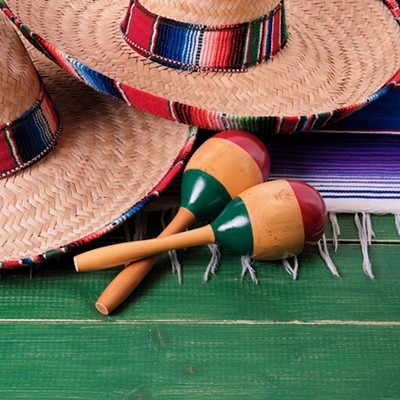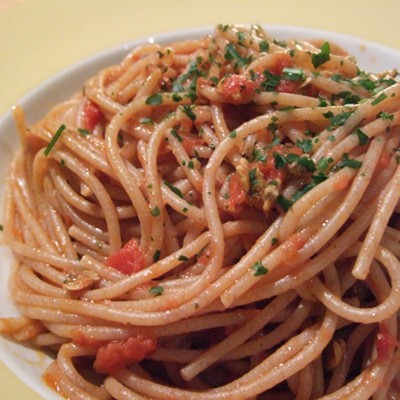Even something as basic as food shopping becomes an ordeal subject to a barrage of holiday music, be it secular or religious, along with displays of seductive specialty items guaranteed to thicken waistlines and harden arteries. And just try finding a place to park that doesn't involve schlepping your groceries the distance of a football field.
Then there's the gift issue. What's that all about? Even if we accept Dec. 25 as commemorating Jesus' birthday, how does that translate into buying all sorts of random stuff for everyone we have ever known, including our dog?
I can't quite put my finger on it, but something tells me running up credit cards was not on Jesus' agenda as he rabble-roused his way through life.
Gift-giving is an interesting phenomenon wrapped in layers of subtext. There are some people who believe gifts are an entitlement, that even a nonevent such as Groundhog Day is an occasion warranting some token acknowledgment of their existence. These folks are clearly lacking in some basic genetic material contributing to a sense of self-worth. Measuring how much we are loved or appreciated by the size or monetary value of a gift is a sorry way to live one's life.
I've always thought gifts ought not be associated with holidays or occasions, and surely not considered an obligation, but rather given spontaneously to demonstrate a connection between giver and receiver. Gifts need not be material objects, either. Sometimes just being fully present and listening to someone who needs to be heard can be a priceless gift. And it's cheaper than therapy.
Speaking of listening: Though merchants are the big financial winners at this time of year, therapists' bank balances increase as well. A friend of mine who makes her living listening to the assorted flavors of human angst points out that the season, which theoretically is about joy, brings more clients to her office than other times of the year. Maybe it's all that stressing about gifts. Or maybe it's something far more serious. After all, the rate of suicides jumps, as well as the number of people who just give it up and die. Maybe the burden of expectations is just too great for some people, and rather than struggle through one more coping ordeal, they just say, "Enough already."
It seems pretty obvious that given this phenomenon, we must be doing something tragically wrong in the way we spend the time between Thanksgiving and Jan. 1. This is borne out by countless articles telling us "How to survive the holidays." Survive? I thought we were supposed to be celebrating.
Maybe we'd all have an easier time if we rethought what the season is about and acted accordingly, rather than in some prescribed way foisted upon us by the mass media and their partners in crime, advertisers. One thing I know for sure: Racing from store to store in a frantic attempt to find the "right gift," stuffing ourselves with an excess of food at endless gatherings, and time spent at office parties with people one would rather avoid, are not conducive to real celebration.
Two groups that, theoretically at least, should have the easiest time reveling in the spirit of the season are pagans and Catholics. (There's little surprise here since Catholicism, of all the Christian religions, appropriated the most from pagan ritual and myth.)
For pagans (a catch-all word for a variety of Earth-centered religions), the winter solstice is especially festive. Though the coldest months of the year are ahead, the universe provides us with reason to rejoice: The sun's warming light begins to gradually increase as days grow longer and nights shorter.
On Christmas Eve, Catholics are blessed with the beauty and pageantry of midnight Mass. (At least I hope the elaborate ritual remains, even if the Latin Mass has gone the way of the dodo bird.)
It's unfortunate Hanukkah and Kwanzaa are celebrated around the same time as solstice and Christmas. Both festivals take a backseat to Dec. 25 in the popular imagination, and as a result, except for the token newspaper article, neither the Jewish festival commemorating the rededication of the Temple of Jerusalem, nor the African-American celebration of heritage, pride, community, family and culture are widely appreciated. It's all Christmas all the time. Too bad.
My fix? Forget the bloody gifts. Keep the tree, but rename it the Yule tree. Decorate it with nuts, dried fruits and handmade ornaments from objects found in nature. Place a dreidel on top. Hug a lot. Laugh a lot. Have yourself a joyous Solhankwanzmas.






